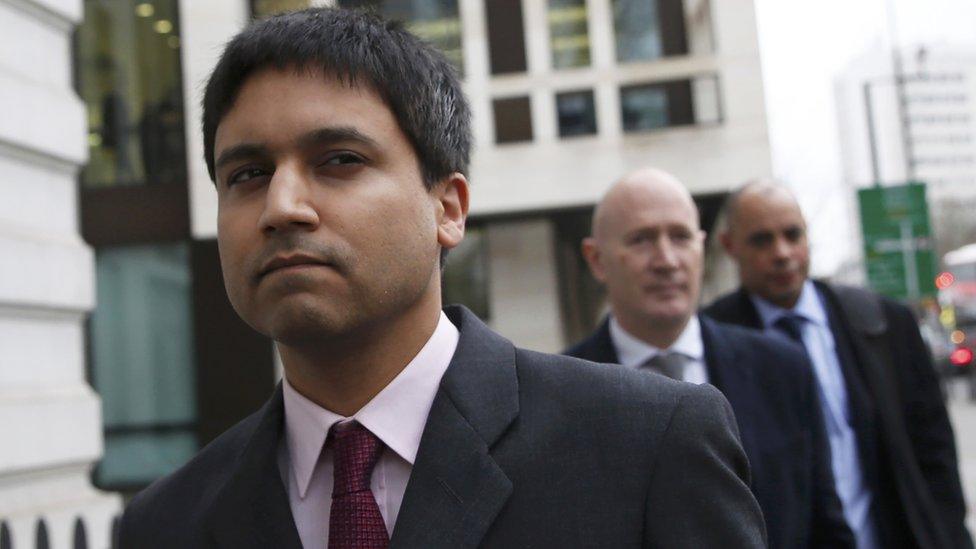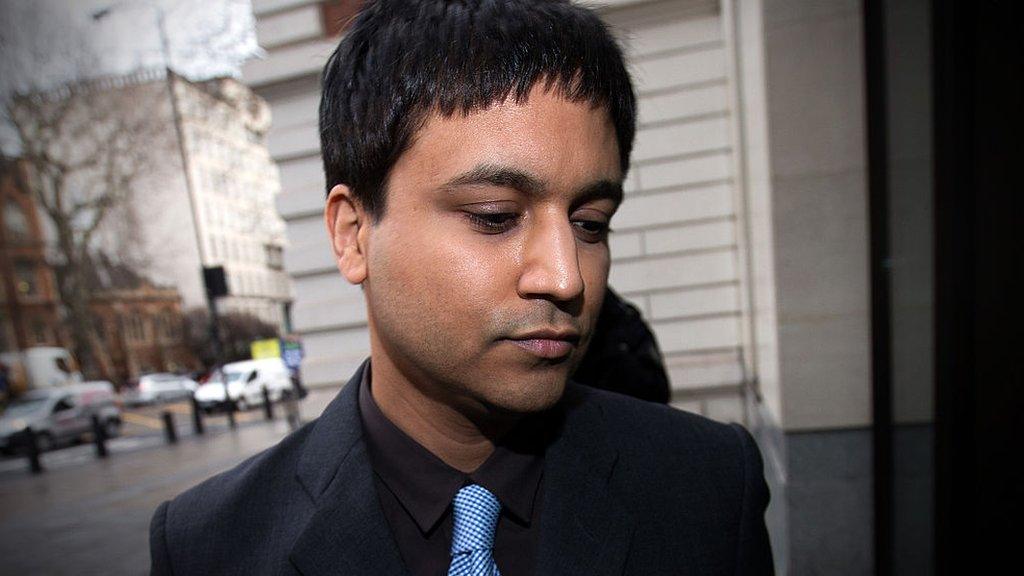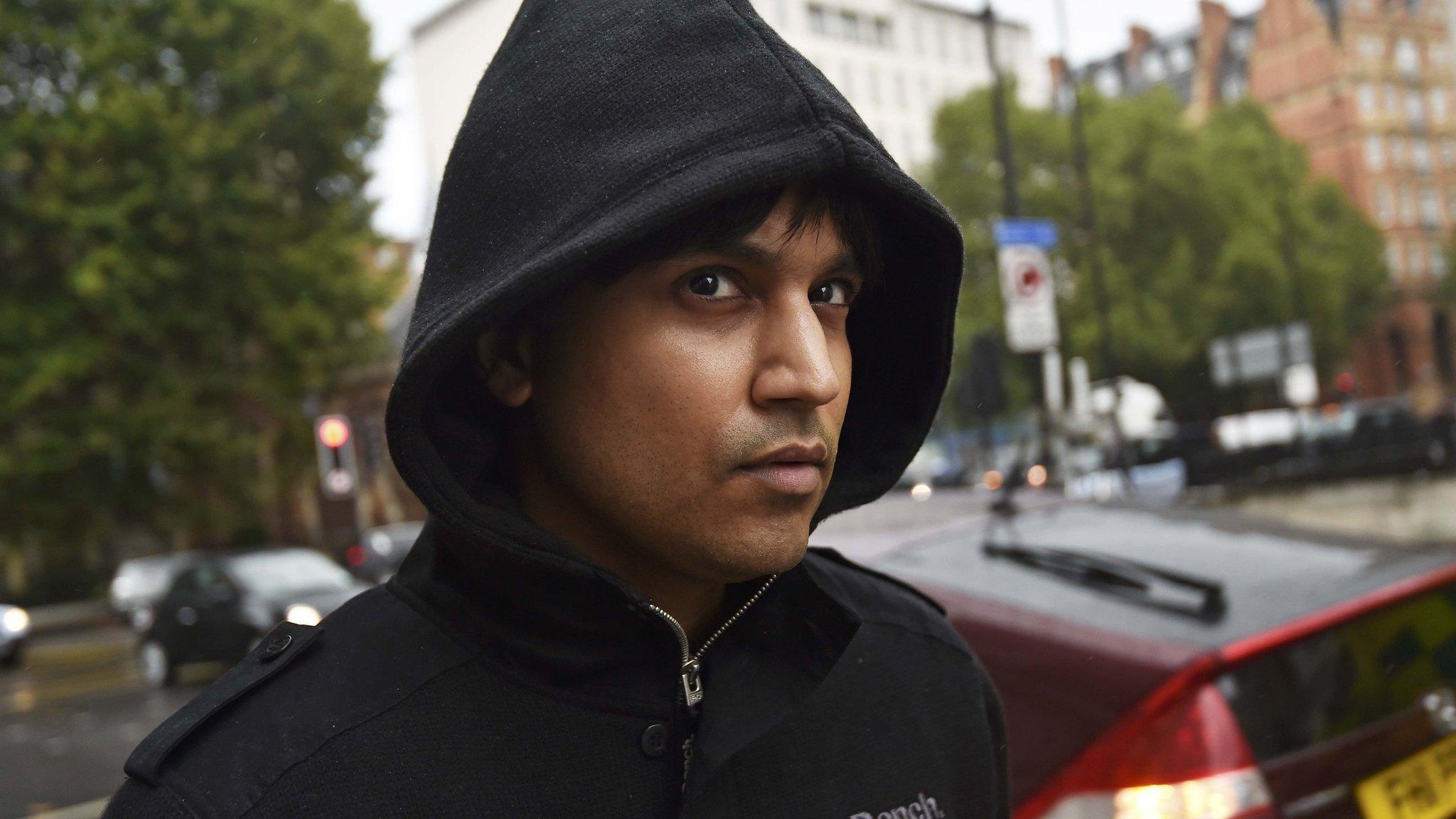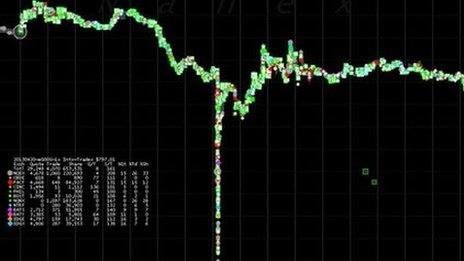'Flash crash' trader Navinder Sarao faces US extradition
- Published

Navinder Sarao, the trader accused of helping to trigger the US "flash crash", can be extradited to face trial, a court has ruled.
Mr Sarao, 37, is accused of contributing to events on 6 May 2010, when the Dow Jones share index briefly fell more than 1,000 points.
Mr Sarao traded on the Chicago Mercantile Exchange from his parents' home near Heathrow Airport in London.
He denies any wrongdoing and intends to appeal against the ruling.
The flash crash on 6 May 2010 temporarily wiped nearly $1 trillion off the value of shares.
Navinder Sarao: Who is the so-called 'flash crash' trader?
A district judge ruled at Westminster Magistrates' Court that Mr Sarao could be handed over to the US authorities to stand trial there.
Mr Sarao attended the brief hearing dressed in a red jumper and black trousers and was released on bail afterwards.
'Spoofing' allegations
The ruling must be approved by Home Secretary Theresa May before the extradition can take place.
Ms May has two months in which to decide, after which the appeal can be heard.
US authorities want Mr Sarao to stand trial on 22 criminal counts.
They allege he is guilty of "spoofing" - the practice of placing large orders that manipulate the markets and then cancelling or changing them, allowing him to buy or sell at a profit.
Mr Sarao's spoofing netted him a profit of $40m (£28m), they argue.
The charges that Mr Sarao faces carry sentences totalling a maximum of 380 years.
His lawyer, Richard Egen, told journalists outside the courtroom: "We still think we have a strong argument and we will be appealing the decision once the Secretary of State makes her decision.
"We are very disappointed. We think we had a strong argument, but we will be going to the Court of Appeal to make our argument there."
- Published23 March 2016

- Published4 February 2016

- Published28 August 2015

- Published22 April 2015
